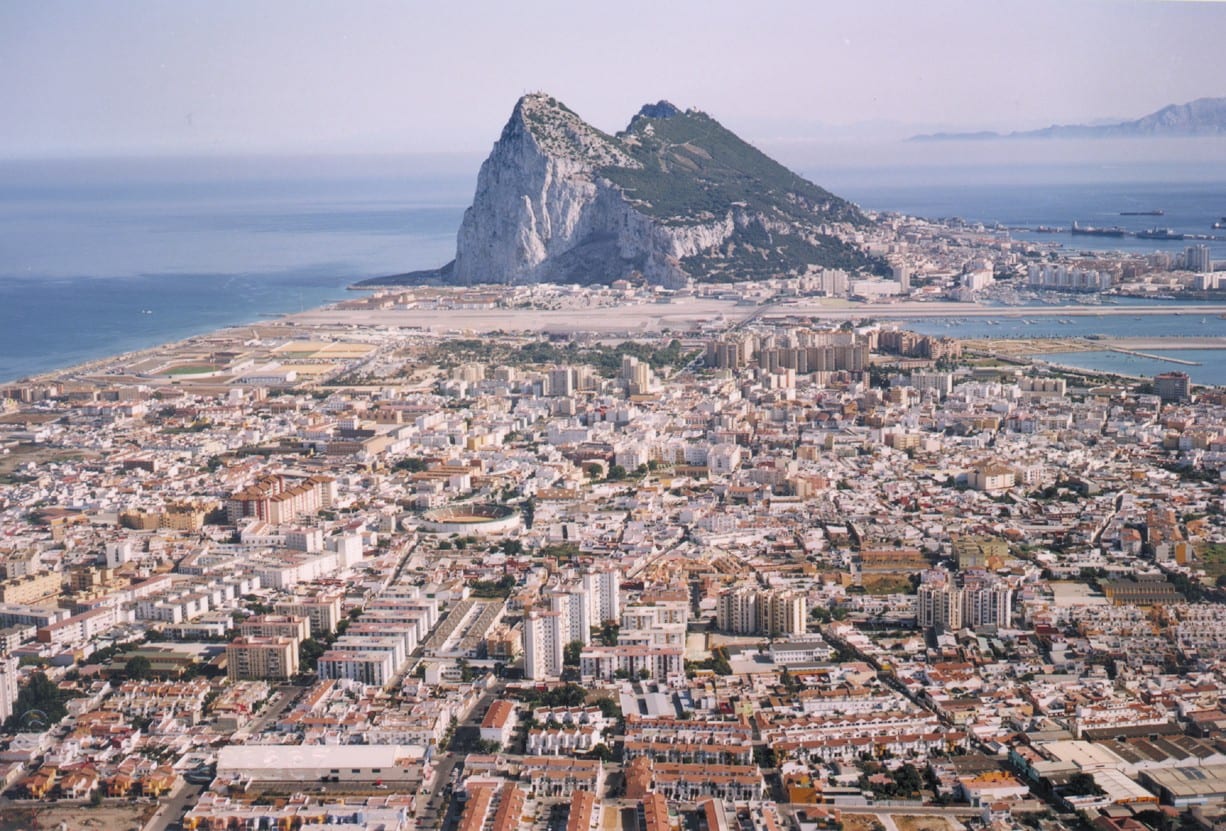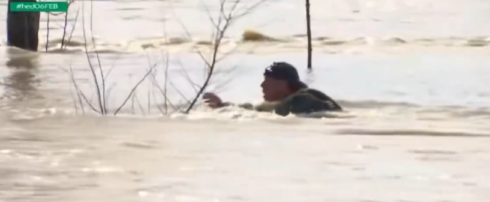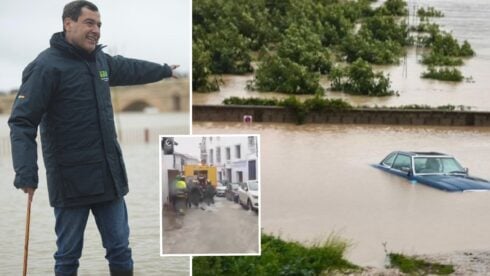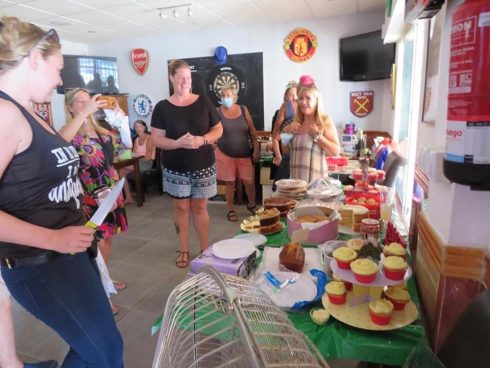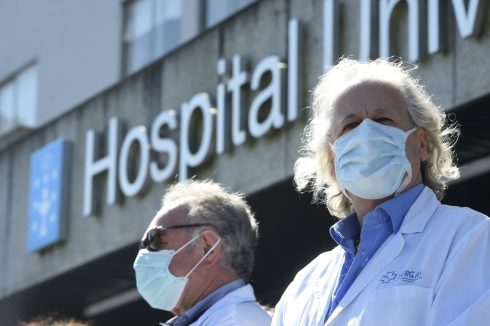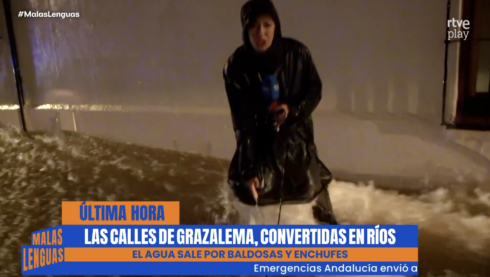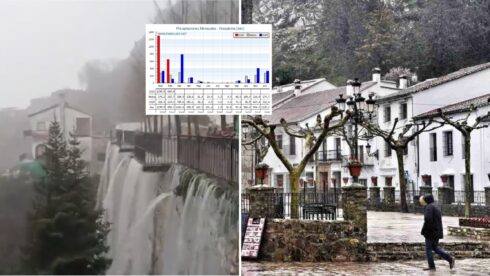FIRING gunshots into the air, police officers swarm towards a boat full of drug traffickers as they raced towards the beach for a drop off in the dead of night.
It looked like something from the Mexican narco wars. But the scene, from the new documentary on Netflix, is real and happening on an almost daily basis just kilometres from popular tourists hotspots on the Costa del Sol.
While the hard-hitting miniseries, La Linea: shadow of Narco, makes for shocking viewing for those watching faraway from the comfort of their sofa, town mayor Jose Juan Franco Rodriguez knows better than anyone how the surge of drug crime has become the greatest scourge of the southern coastline of Spain.

In a hard-hitting interview with one of Andalucia’s most popular alcaldes, he tells the Olive Press that when he became mayor of La Linea in 2015, he knew he was taking on the ‘most difficult job in Europe’.
Born and raised in the town that sprawls along the border of Gibraltar, Franco has dedicated his career to improving the place he says remains ‘in the eye of the hurricane’.
It used to be that just the presence of the police on the shores of La Linea de la Concepción was enough to deter the criminals – Franco once said he believed the earlier generations ‘had certain ethics’’ when it came to the drug trade.
But in recent years they have grown bolder and more sophisticated in their ruthless dealings and it is estimated that more than 30 drug gangs employ circa 3,000 people, with the documentary sharing shocking footage of drug boats loaded full of packages as they speed past police boats and empty beaches, a law unto themselves.
It’s these extreme circumstances that persuaded Franco to open the doors of the Town Hall to Netflix television crews for many months last year, in the hope that the documentary would expose the dangers faced by the city and put pressure on the central government to cough up extra funds and resources.
Whether they will, remains to be seen – and Franco reveals that he is still in two minds about the documentary.
“I would prefer to talk about the strength of our city but the reality of narcos traffic is always there,” he said.
“I understand it is the show they want to make. We are not Columbia, but it’s clear they wanted to show that we were going that way because that is entertaining.”
He adds: “We have a very uncomfortable reality in La Linea. Thousands of people try to earn their money honestly but the drug dealers are here and so is the tobacco smuggling industry.
“When we talk with the people who live here, they want everyone to know the truth of the city – but it has two branches.
“On the one hand we are a normal city, what we have built here is impressive but on the other, there is a dark social reality in our town.
“The root of the problem is a very complicated social issue. Our city is just 50km from Morocco, the biggest producer of cannabis in the world, and we have 12km of beach that is very hard to monitor. We have become the gateway for drugs getting into Europe.”
It’s the proximity to both Gibraltar and Morocco has made the city a key base for criminal gangs and drug kingpins, with Narcos travelling in by high-powered speedboats every night from north Africa to drop off several tonnes of hashish and tobacco.
Franco says his main challenge is getting through to the youngster who, in some areas of the city, workshop the like narcos pop stars.
“The majority of people in La Linea are against the drug trade,” insists Franco, a lawyer by trade. “But there is a minority of people who idolise the drug clans.
“Even if we are talking just 1% of the population, that is a big problem because then that’s about 700 people. In certain areas of the city, the narcos are god. But the majority of people hate the circumstances we are in.”
Change, Franco says, will only come from educating these youngsters and ensuring they enter better forms of employment instead of turning to criminal gangs as a way to make money.
“If we solve the problem of unemployment and low education that will help,” he believes. “We need a plan to improve the infrastructure here from the central government. We need Madrid’s attention to help us ensure that young people can go into good jobs, not just turn to criminal organisations for money.”
Unemployment rates in 2020 hover around the 33% mark – a fact that has pushed many of its people into assisting the Rock’s smugglers by warehousing contraband tobacco from Gibraltar and drugs from Morocco before it is distributed throughout mainland Spain.
But Franco is hopeful that change is coming. As the final Brexit deadline looms with the transition period due to end on December 31, Franco predicts businesses will be looking to move their operations from Gibraltar to La Linea, potentially creating thousands of new jobs in the area.
“This is my focus for the next three months. There are people, particularly in the financial sector, that need a passport to work in Europe and I hope that La Linea can become the platform for these activities and connect people to the EU.”
Franco is determined but admits that challenges his city faces are overwhelming.
“The problem is that we cannot reject or minimise the drugs arriving from Africa. We cannot change the fact that it is so close.
“But we are taking steps to change our reality here,” he said. “I am committed to that.”
Click here to read more News from The Olive Press.

